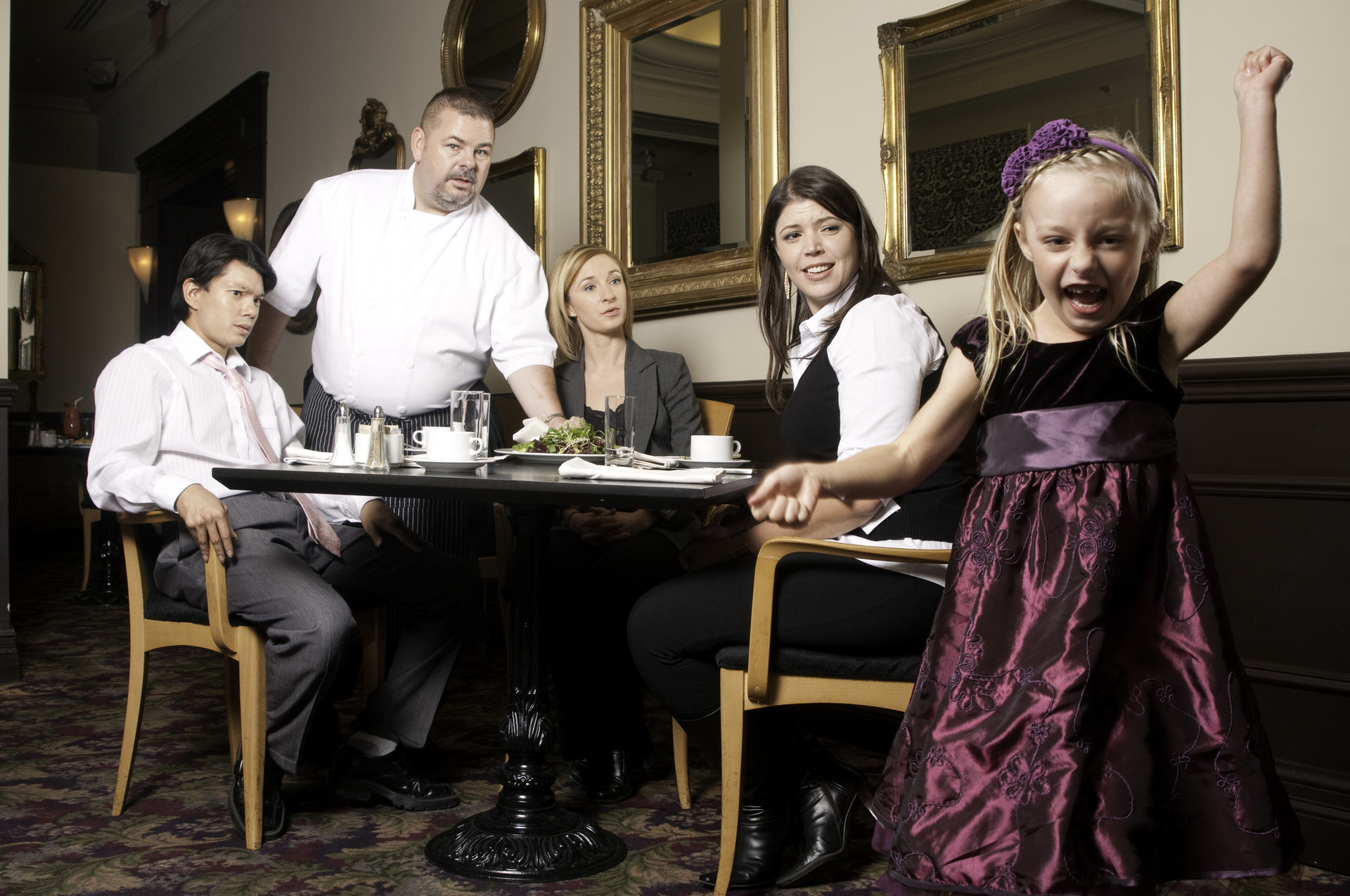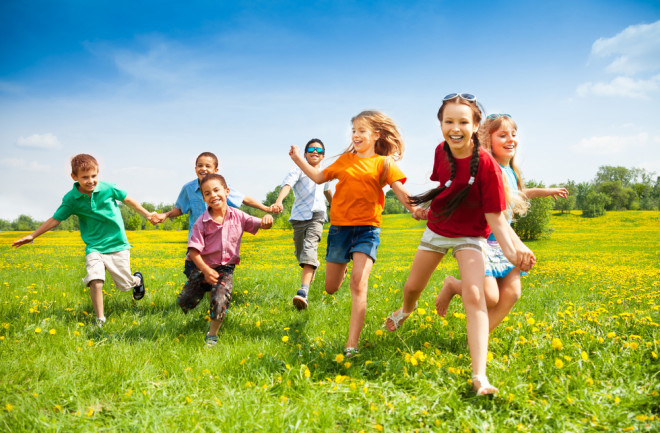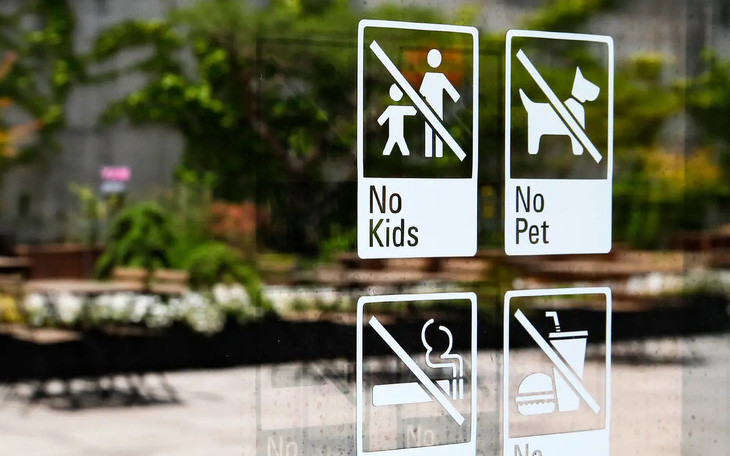Compared to adults, children often have more energy and easily express it through actions such as screaming, running or being naughty.

In these cases, parental education plays a very important role in helping children adjust their behavior.
According to the American Psychological Association (APA), children can learn behaviors from their parents from an early age. When they are yelled at every time they are naughty, children may develop a tendency to yell and yell back at their parents.

In late 2023, a TikTok post by Australian Kitch Catterall garnered more than 600,000 views and reactions. Catterall shared her "horrific" experience of encountering children at a pool where she was trying to enjoy peace and relaxation.
Several children began jumping into the pool, screaming and causing havoc, which she found unbearable. These frustrations led Catterall to call for pools to ban children, something she said "many people are afraid to express".
"I want to know when someone is going to open an adults-only suburb where everything is for adults only. Because I'm so tired of going to places where there are screaming children and I have to put up with it," she said.
Catterall went to a public swimming pool. Although there was a separate area for children, some children went to the adult pool to run around and splash around.
 Restaurants in South Korea cause controversy for banning children
Restaurants in South Korea cause controversy for banning childrenSimilarly, in July 2023, a Reddit account also posted a controversial opinion, suggesting that parents should take their disruptive children out of public areas to avoid disturbing those around them.
"It should be socially acceptable to ask parents to quiet a crying or noisy child, or at least take them somewhere else. At the airport, in a cafe, on public transport. These experiences are even worse than if the child is screaming at the cinema or at a wedding," the account said.
Meanwhile, the newspaperWashington Postonce asked the question "Is it discriminatory for a restaurant to ban children?". In an article recounting the story of Yong Hye In, 33, the newspaper said that Yong had been suffering from postpartum depression since 2021.
Despite struggling with depression, Yong tried to go to a coffee shop with her husband and children to relax. However, they were turned away because it was a “no-kids zone”. The Korean woman broke down in tears, saying that she was heartbroken that she could not enter the shop because she had brought her child with her.
According to estimates from the Jeju Research Institute, a think tank, South Korea has about 500 child-free zones, not including spaces that are typically off-limits to children, such as bars and nightclubs.
Restrictions on young people are not limited to South Korea. Policies at restaurants and cafes have sparked debate in the United States, United Kingdom, Canada, Germany and elsewhere. Several airlines, including Japan Airlines, Malaysia Airlines and IndiGo in India, have created options for passengers to choose seats away from small children or infants. Some libraries and museums also impose minimum age limits on visitors.
These policies have been met with both anger and praise. Supporters say business owners have the right to control their atmosphere, especially when children causing trouble or screaming can upset other customers.
Many, however, say the rule stigmatizes children and denies them their basic right to be in public. The debate raises broader questions about who is responsible for caring for, and sometimes tolerating, the next generation.
Old Barracks Roastery, a cafe in Ireland that bans children, says on its website that it hopes to give adults some time to themselves.
However, many feel there are better ways to manage public environments. John Wall, a professor of childhood studies at Rutgers University, says that restaurants, cafeterias, and public spaces that prohibit loud and disruptive behavior are easier to manage than outright banning children.
For Amy Conley Wright, director of the Child and Family Research Centre at the University of Sydney, child-free zones break a fundamental intergenerational pact about how we need to care for those who come before and those who come after.
She calls the ban on children shortsighted. “People forget they were once children. Do you think you never screamed when you were a child?” Wright said.
In the world, Japan is one of the countries that frequently faces natural disasters such as earthquakes and tsunamis, causing great damage and situations that can easily lead to chaos in public places.
However, after each natural disaster, all the international community witnesses is the resilience and courage of the people, the ability to recover from natural disasters and above all, the order and calmness that the Japanese people demonstrate.
This calmness, even in crisis situations, is often cultivated from childhood. Japanese children are taught by their parents to be considerate of others' feelings and to remain calm and composed in difficult times.
This trait extends to all areas of life, including public spaces such as museums, libraries, and buses. Japanese children are known for their disciplined and polite behavior, which is also the foundation for the Japanese people's thoughtfulness, calmness, and independence in all situations.
Meanwhile, research from the American Psychological Association (APA) points out the importance of parents communicating healthily with their children. One of the prerequisites is to avoid yelling and scolding children when they disobey, because this can easily lead to similar behaviors in children.
TT (according to Tuoi Tre newspaper)